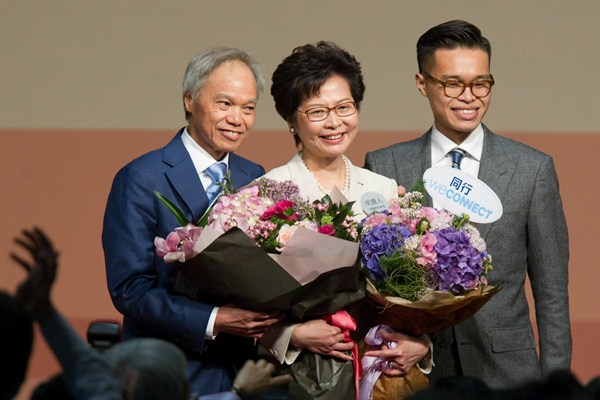On Sunday, Carrie Lam, the candidate preferred by Beijing, was chosen as Hong Kong’s next chief executive, a development that was widely seen as a setback for those worried about the preservation of Hong Kong’s autonomy. The following day, nine pro-democracy activists involved in protests in 2014 turned themselves into police, who announced they would be charged with causing a “public nuisance.” In an email interview, Michael C. Davis, a senior fellow at the University of Hong Kong’s Center for Comparative and Public Law, discusses what Lam’s election means for Hong Kong’s relationship with Beijing as well as possible next steps for the pro-democracy movement.
WPR: How widespread is frustration in Hong Kong over how the chief executive election played out, and how supportive is the general population to pro-democracy activists’ demands and tactics?
Michael C. Davis: It is important to appreciate that Hong Kong people are rather pragmatic and do not make political reform demands or join protests lightly. However, as reflected in the 2014 protests and the 2016 Legislative Council elections—where democrats, including some young protest leaders, made substantial electoral gains for the pan-democratic camp—there is widespread concern that Hong Kong’s autonomy is under threat. For Hong Kong people, this autonomy is the bulwark to preserve the rule of law and other core values as well as Hong Kong’s distinct identity.

